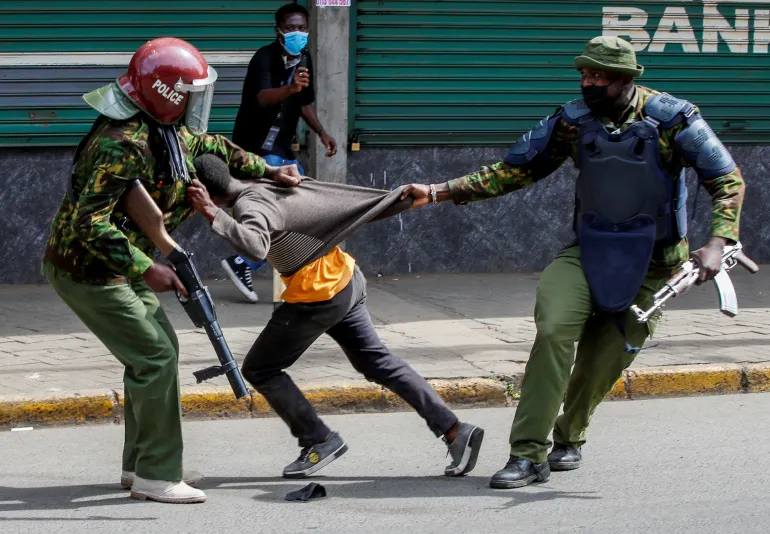
Kenya’s police chief Japhet Koome has resigned, following weeks of violent protests against proposed tax hikes in which more than 40 people died.
Human rights groups have accused police of shooting dozens of protestors, some of them fatally, and abducting or arbitrarily arresting hundreds more.
The resignation comes a day after President William Ruto sacked most of his cabinet, following pressure from the protest movement which is largely coordinated online by young Kenyans.
Two weeks ago protesters stormed parliament, shortly after legislators passed the controversial finance bill. Police responded by opening fire on demonstrators in the streets.
President Ruto later withdrew the bill but that has failed to satisfy the demonstrators, who want him to step down and are planning more protests to demand further reforms.
Deputy police chief Douglas Kanja takes over running the force with immediate effect, the Kenyan presidency has said.
Mr Koome’s resignation has been welcomed by Kenyans, yet police officers who caught on film firing at protesters remain at large.
Last week during an unprecedented discussion on X, formerly Twitter, President Ruto promised Kenyans he would take action against those police officers once he received video evidence. It is not clear whether this has happened.
On Friday at least 11 dead bodies, some of them dismembered, were found at a rubbish tip in the capital, Nairobi, after residents raised the alarm. It is not yet clear whether their deaths have any connection with the protests.
President under pressure
In the midst of the biggest crisis of his two-year presidency, Mr Ruto earlier this week met opposition leader Raila Odinga and announced plans to form a 150-member dialogue panel to help find a solution to the country’s problems.
After sacking key cabinet members on Thursday including the attorney-general, the president said he would now consult widely in order to set up a broad-based government.
The proposed tax measures were intended to help ease the country’s debt burden of over $80bn (£63bn). About 60% of Kenya’s collected revenues goes to servicing debt.
But protesters have insisted the government should first cut spending, saying there was too much waste and corruption. In response to this demand, the presidency last week announced a number of austerity measures





































